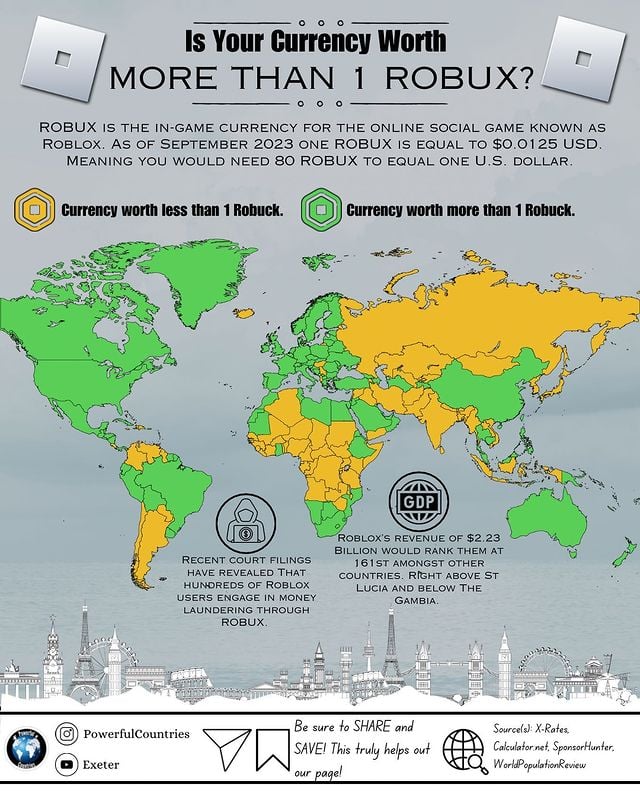this post was submitted on 18 Oct 2023
312 points (100.0% liked)
196
16416 readers
2167 users here now
Be sure to follow the rule before you head out.
Rule: You must post before you leave.
founded 1 year ago
MODERATORS
you are viewing a single comment's thread
view the rest of the comments
view the rest of the comments

Because the EU doesn't use the cent, they use the Euro. A cent is a fraction of a euro.
The Yen is like that because they had hyperinflation for a while.
This comment really doesn't make sense.
The point of the comment is to point out the common misconception that the value of one [token of a currency] has anything to do with the strength of a currency. As described in the comment, the value of a singular token of a currency can be chosen arbitrarily.
This, of course, doesn't mean the map is factually incorrect.
But the value of a unit of currency being unrelated to the currency's strength had nothing to do with whether that currency has cents or not. That comment just used the wrong explanation to make a correct point.
Also the map isn't entirely useless, because what it does illustrate is currencies which likely suffered from high or hyper-inflation in the past (or are very old). Obviously, no government first issues a currency and says "... and so one loaf of bread is 10000 schmeckles". That's just impractical.
Of course this doesn't mean that then Japanese Yen is a bad currency, but it does make for an interesting historical point.
This, I don't think the map is incorrect, for me it would be more interesting to compare people's wealth than the arbitrary value of a token